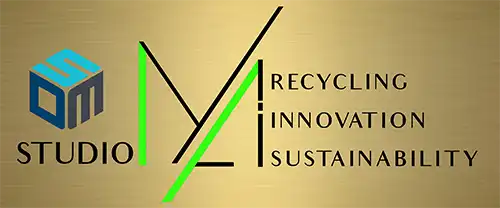Our Sustainability Vision

At DMS Ventures, sustainability is at the heart of everything we do. Our Smart Bin Food Composters transform organic waste into nutrient-rich compost within 24 hours, helping organizations across the UAE and Middle East align with government visions of Net Zero 2050 and Zero Waste to Landfill by 2030.
By integrating cutting-edge technology with environmental responsibility, we are committed to:
- Reducing carbon emissions
- Diverting organic waste from landfills
- Supporting circular economy initiatives
- Helping industries, hotels, and communities adopt sustainable waste practices
Why Sustainability Now?
UAE Net Zero 2050
Zero Landfill 2030
COP28 Climate Action
The Middle East, led by the UAE, is driving sustainability with ambitious targets:
- UAE Net Zero by 2050 – the first in the region to commit to climate neutrality.
- Zero Landfill 2030 – Dubai Integrated Waste Management Strategy 2041 targets complete diversion of waste from landfills.
- COP28 (Dubai 2023) placed global focus on reducing methane and accelerating circular economy solutions.
Organic waste accounts for 50–60% of municipal solid waste in the UAE (Dubai Municipality, 2023). When dumped in landfills, it releases methane gas, which is 28 times more potent than CO₂ as a greenhouse gas. Composting directly tackles this challenge.
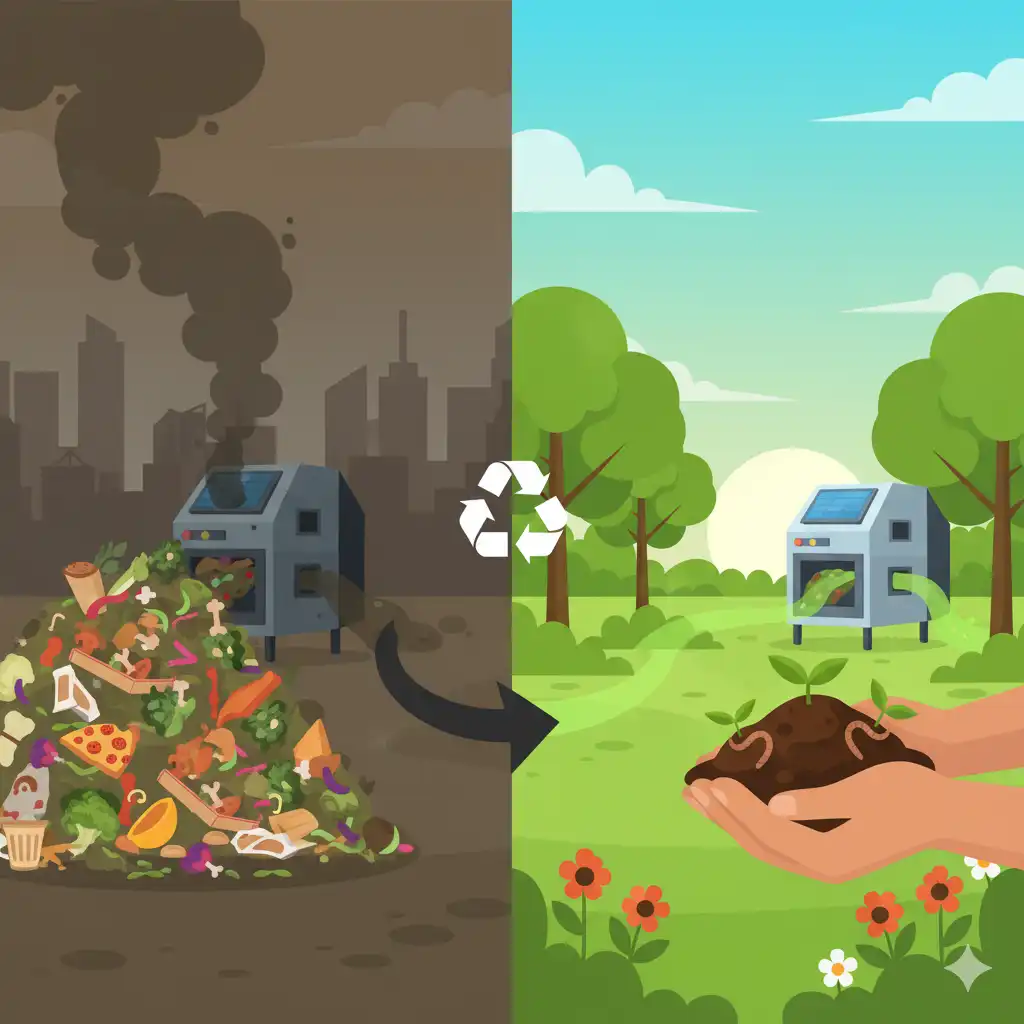
Sustainability Benefits
🌱 Environmental Benefits
- Diverts food and organic waste from landfills
- Cuts methane emissions and lowers overall greenhouse gases
- Produces nutrient-rich compost for landscaping, agriculture, and green projects
- Supports circular economy and reduces dependency on chemical fertilizers

Cost Reduction
- Composting organic waste reduces landfill disposal fees and transport costs.
- Hotels and resorts can repurpose compost for landscaping, gardens, or golf courses, lowering fertilizer and soil purchase costs.
- Waste reduction initiatives align with broader financial efficiency goals, helping operators cut operational expenses without compromising service quality.
- Access to potential government subsidies and green initiatives
Compliance with UAE Regulations & Global Commitments
- The UAE Government has mandated zero waste to landfill by 2030, under initiatives such as the Dubai Integrated Waste Management Strategy 2041.
- Composting supports compliance with environmental regulations, ensuring hospitality businesses avoid fines and align with UAE Net Zero 2050 Strategy.
- Businesses adopting composting and recycling practices can gain recognition through green certifications (LEED, Green Key, or Dubai Sustainable Tourism) and may benefit from incentives or subsidies linked to sustainable programs.
- Following COP28 (Dubai 2023), the hospitality industry is under increased global attention to deliver measurable climate action, including waste and carbon reduction.
Carbon Reduction & Climate Impact
- Organic waste in landfills produces methane, a greenhouse gas 28 times more potent than CO₂. Composting prevents this release, significantly cutting emissions.
- Composting contributes to corporate carbon footprint reduction and aligns with ESG reporting requirements, which are increasingly demanded by investors, regulators, and guests.
- By recycling food waste into compost, hotels support the UAE’s goal of cutting waste sector emissions and meeting international commitments under the Paris Agreement.
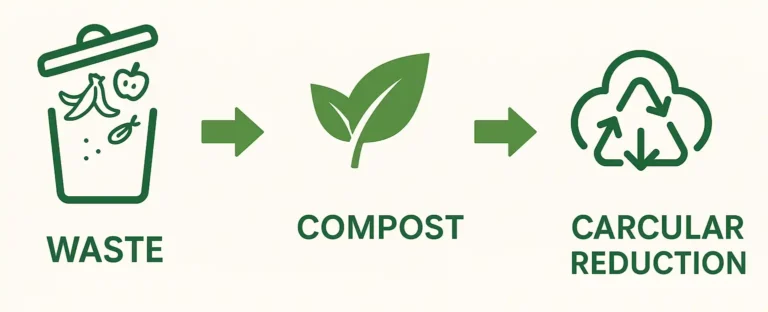
Resource Recovery & Circular Economy
- Food composters convert organic waste into nutrient-rich compost that can be reused onsite or sold, closing the loop in a circular economy model.
- Compost can replace chemical fertilizers, improving soil health and reducing reliance on imported agricultural inputs.
- Supports broader Middle East efforts to diversify resource use and encourage green innovation across sectors.
Improved Brand Reputation & Green Tourism Advantage
- Guests increasingly prefer eco-friendly hotels, with sustainability now a key decision factor for international tourists.
- Hotels and resorts adopting composting can promote their efforts on platforms like TripAdvisor GreenLeaders or through Dubai Sustainable Tourism recognition programs, boosting bookings and occupancy rates.
- Increases customer loyalty and recognition on platforms like Dubai Sustainable Tourism and TripAdvisor GreenLeaders
- Eco-certification and green initiatives differentiate brands, strengthening long-term customer loyalty.
- Enhances brand reputation as a sustainable, eco-friendly organization
- Provides measurable ESG metrics for investors, regulators, and stakeholders
- Aligns with corporate CSR commitments and green tourism certifications
Landfill Diversion & Extended Capacity
- Every ton of food waste composted reduces the burden on landfills, directly supporting the UAE’s zero-landfill ambition.
- Landfill diversion minimizes environmental disruption and conserves land resources for other urban development projects, critical in high-density regions like Dubai and Abu Dhabi.
Innovation, Efficiency & Energy Potential
- Composting solutions foster operational innovation by integrating smart technologies for waste tracking, reporting, and optimization.
- Advanced food waste machines can integrate with waste-to-energy systems, converting residuals into biogas or electricity, lowering reliance on fossil fuels.
- These initiatives position hotels as leaders in innovation, attracting both environmentally conscious travelers and business partners.
Impact in Numbers
Million Tonnes food waste / year
AED food waste value yearly
CO₂ saved / Ton composted
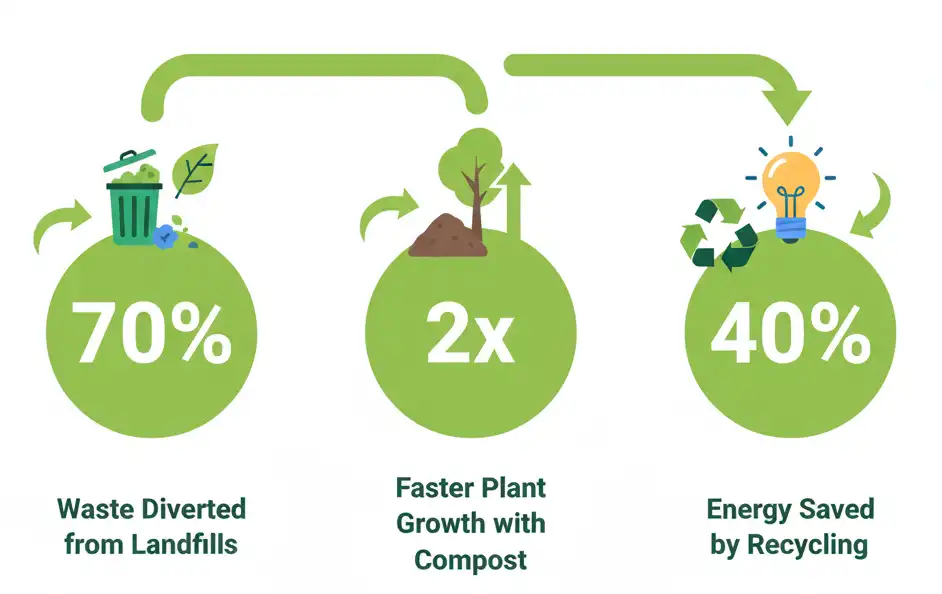
- 3.5 million tonnes of food wasted annually in the UAE (UAE Ministry of Climate Change & Environment, 2023).
- Food waste is valued at AED 13 billion annually in the UAE.
- Composting 1 ton of food waste prevents up to 2.5 tons of CO₂-equivalent emissions (FAO & UN Environment Programme).
- Hotels in Dubai generate 3–4 kg of waste per room per day, making composting a direct solution for the hospitality sector (Dubai Tourism Report, 2023).
How Smart Bin Helps
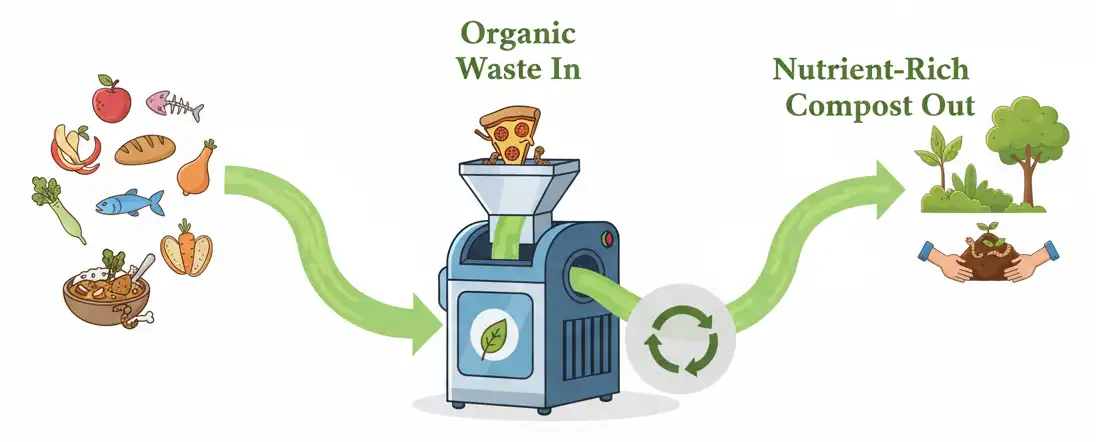
- Composts food waste in 24 hours into usable compost.
- Handles all organic waste types – fruits, vegetables, meat, dairy, breads, fast food, shells.
- No chemicals or microorganisms required.
- Built with SS304 stainless steel for durability, corrosion resistance, and hygiene.
- Energy-efficient electronic heating saves 25–30% power.
- Scalable solutions from 100kg to 2,000kg daily capacity for hotels, communities, vessels, and offshore sites.
Global & Regional Alignment
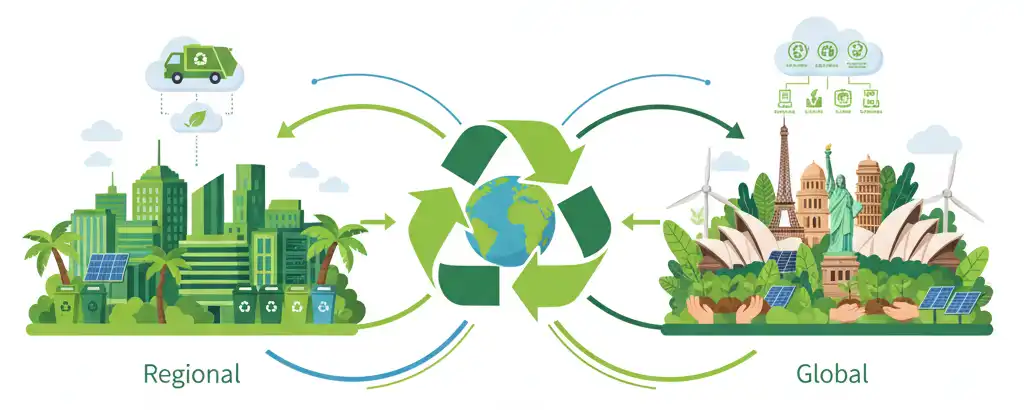
Our solutions align with:
- UAE Net Zero 2050 Strategy
- Dubai Waste to Energy and Circular Economy Roadmap
- Saudi Vision 2030 Sustainability Goals
- COP28 Methane Reduction & Food Waste Agenda
